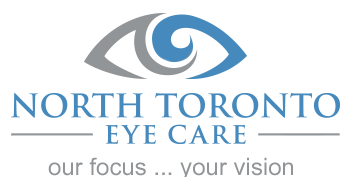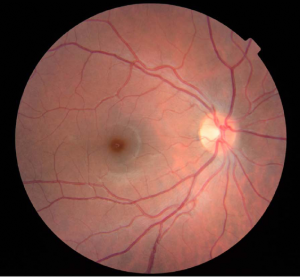Diabetes is a common diagnosis in Canada, one that can effect many systems of the body. The eyes are not immune to this effect, in fact diabetes can effect eyes both directly and indirectly. People with diabetes are more likely to develop cataracts at a younger age. They are also twice as likely to develop glaucoma. The primary vision problem in diabetes is called “diabetic retinopathy” which is the leading cause of blindness in adults ages 20-65.
Diabetic retinopathy simply means that there is damage to the retina, specifically to the small blood vessels of the eyes. These vessels are effected first by swelling, then they may get blocked and over time the walls of the vessels become weaker which may eventually lead to leaky blood vessels. You can see an example of this in the first photo showing blood and fluid leaking from blood vessels. There are different stages of diabetic retinopathy and they all depend on the extent of these changes to the retinal blood vessels. The more these changes progress, the worse the condition gets.
Some of the symptoms which one should watch out for are as follows: blurred or double vision, flashes of light, blind spots in the field of vision, and fluctuating vision. Therefore, it is very important to control the diabetes. Now you may ask yourself how can one control the diabetes. Here are some pointers that you should keep in mind:
Reduce your risk of developing retinopathy or making it worse:
- control your blood sugar (glucose levels)
- tightly control your blood pressure
- control your cholesterol levels
- exercise! maintain a healthy weight
- do not smoke (Smoking increases your blood pressure and raises your blood sugar level)
- regular retinal eye examinations. (Early detection and treatment prevents sight loss)
Unfortunately, there are risk factors that cannot be controlled:
- Years that you have had diabetes. This is a major risk for developing diabetic retinopathy.
- your age
- your ethnicity. If your background is from India, Pakistan, Bangladesh or Sri Lanka you are more at risk of developing diabetes
This is a short article about diabetic retinopathy but hopefully it will give you a head start on the care of your eyes.


